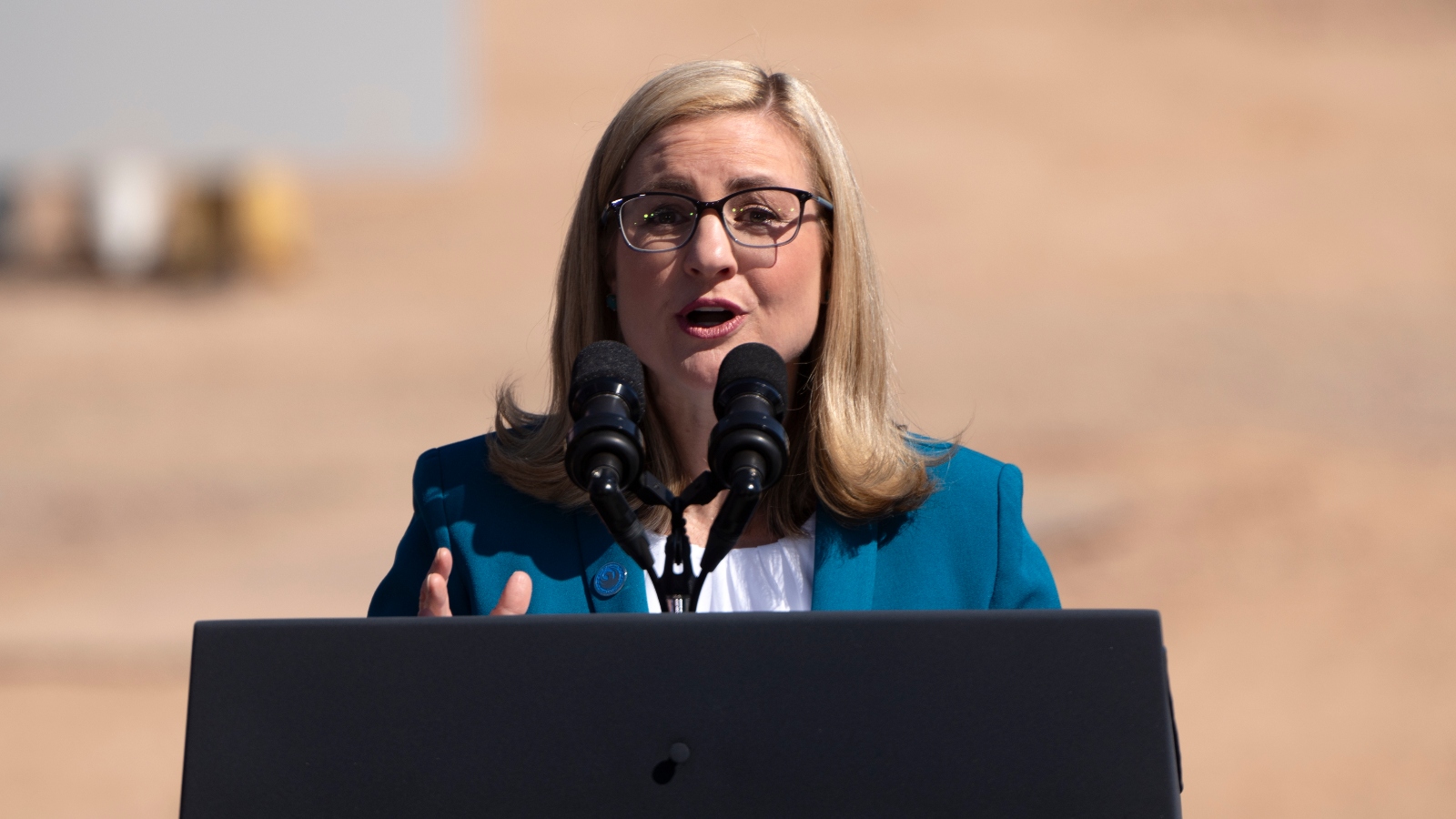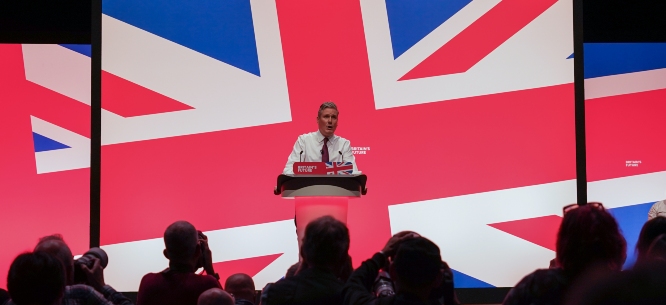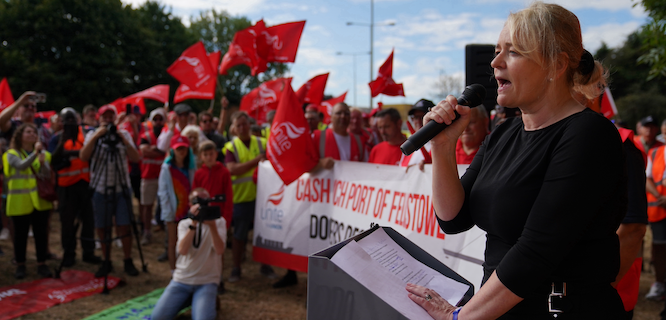What does it mean to be antisemitic in modern Britain? The answer seems ever more confusing.
We have reached the seemingly absurd point that a political leader famed for his anti-racism, a rock star whose most celebrated work focuses on the dangers of racism and fascism, and a renowned film maker committed to socially progressive causes are all now characterised as antisemites.
And in a further irony, those behind the accusations do not appear to have made a priority of anti-racism themselves – not, at least, until it proved an effective means of defeating their political enemies.
And yet, the list of those supposedly exposed as antisemites – often only by association – keeps widening to include ever more unlikely targets.
That is especially true in the Labour Party, where even the vaguest ties with any of the three iconic left-wing figures noted above – Jeremy Corbyn, Roger Waters and Ken Loach – can be grounds for disciplinary action.
One of the Labour Party’s most successful politicians, Jamie Driscoll, North of Tyne mayor, was barred last month from standing for re-election after he shared a platform with Loach to talk about the North’s place in the director’s films.
Not coincidentally, Driscoll has been described as “the UK’s most powerful Corbynista” – or supporter of Corbyn’s left-wing policies. The nadir in this process may have been reached at the Glastonbury Festival.
Back in 2017, Corbyn, then-Labour leader, was given top billing as he set out a new, inspirational vision for Britain. Six years on and organisers cancelled the screening of a film, Oh Jeremy Corbyn: The Big Lie, highlighting the sustained campaign to smear Corbyn as an antisemite and snuff out his left-wing agenda.
The decision was taken after pro-Israel pressure groups launched a campaign to smear the film as antisemitic. The festival decided showing it would cause “division”.
So what is going on?
To understand how we arrived at this dark moment, one in which seemingly anyone or anything can be cancelled as antisemitic, it is necessary to grapple with the term’s constantly mutating meaning – and the political uses this confusion is being put to.
A few decades ago, an answer to the question of what constituted antisemitism would have been straightforward. It was prejudice, hatred or violence towards a specific ethnic group. It was a form of racism directed against Jews because they were Jews.
Antisemitism came in different guises: from brazen, intentional hostility, on the one hand, to informal, unthinking bias, on the other. Its expressions varied in seriousness too: from neo-Nazi marches down the high street to an assumption that Jews are more interested in money than other people.
But that certainty gradually eroded. Some 20 years or so ago, antisemitism began to encompass not just hostility to an ethnic group, Jews, but opposition to a political movement, Zionism.
There was a huge irony.
Zionism is an ideology, one championed by Jews and non-Jews, that demands either exclusive or superior territorial and political rights for mostly Jewish immigrants to a region of the Middle East inhabited by a native population, the Palestinians.
The key premise of Zionism, though rarely stated explicitly, is that non-Jews are inherently susceptible to antisemitism. According to Zionist ideology, Jews therefore need to live apart to ensure their own safety, even if that comes at the cost of oppressing non-Jewish groups.
Zionism’s progeny is the self-declared “Jewish state” of Israel, created in 1948 with bountiful assistance from the imperial powers of the time, especially Britain.
Israel’s establishment as a Jewish state required the ethnic cleansing of some 750,000 Palestinians from their homeland. The small number who managed to stay inside the new state were herded or caged into reservations, much as happened to Native Americans.
None of this should be surprising. Zionism emerged more than a century ago in a colonialist Europe very much imbued with ideas of racial hierarchies.
Simply put, Israel’s founders aspired to mirror those ideas and apply them in ways that benefitted Jews.
Just as European nations viewed Jews as inferior and a threat to racial purity, Zionists regarded Palestinians and Arabs as inferior and endangering their own racial purity.
It is only once one understands Zionism’s inbuilt and systematic racism that it becomes clear why Israel has shown itself not just unwilling but incapable of making peace with the Palestinians. Which, in turn, helps to explain the recent evolution in antisemitism’s meaning.
After Israel collapsed the Oslo peace talks in 2000 to prevent a state for Palestinians being established on a sliver of their former homeland, the Palestinians launched an uprising, or intifada, that Israel brutally subdued.
Israel’s crushing of the Palestinians’ fight for self-determination coincided with the arrival of new, digital kinds of media that made concealing the cruelty of Israel’s repression much harder than before.
For the first time, western publics were exposed to the idea that Israel and the ideology that underpinned it, Zionism, might be more problematic than they had been encouraged to believe.
The romantic illusions about Israel as a simple refuge for Jews started to unravel.
That culminated in a series of reports by leading human rights groups in recent years characterising Israel as an apartheid state. Israel’s supporters, however, whether Jews or non-Jews, have struggled to acknowledge the ugly, anachronistic ideas of race, apartheid and colonialism at the heart of a project they were raised to support since childhood.
Instead they preferred to expand the meaning of antisemitism to excuse Israel’s abuse of the Palestinians.
So in parallel to Israel’s crushing of the Palestinian uprising, its apologists intensified the blurring of the distinction between hostility towards Jews and opposition to Israel and Zionism.
They began a campaign to redefine antisemitism so that it treated Israel as a kind of “collective Jew”.
In this new, perverse way of thinking, anyone who opposed Israel’s oppression of the Palestinians was as antisemitic as someone who marched down the high street shouting anti-Jewish slogans.
Antagonism to Israel was denied the right to present itself as evidence of anti-racism, or support for Palestinian rights.
This evolution culminated in the adoption by a growing number of governments and official bodies of an entirely new, and extraordinary, definition of antisemitism that prioritised opposition to Israel over hatred towards Jews.
Seven of the International Holocaust Remembrance Alliance’s 11 examples of antisemitism focus on Israel. The most problematic is the claim that it is antisemitic to argue Israel is “a racist endeavour”.
That view has been a staple of anti-racist, socialist thought for decades, as well as serving for 16 years as the basis of a United Nations resolution.
Perhaps not surprisingly, Israel took a pivotal role behind the scenes in formulating the IHRA definition.
The new definition might have gained little traction, but for two key factors.
One was that it was not just Zionists who had an interest in protecting Israel from scrutiny or serious criticism. For the West, Israel was the lynch pin for projecting its military power into the oil-rich Middle East.
The benefits the West received from that power projection – continuing colonial meddling in the region – could be disguised, too, by directing attention at Israel and away from the West’s guiding hand.
Better still, the backlash against Israel’s role inflaming the Middle East could be stifled by labelling any critic as antisemitic. It was the West’s perfect cover story and the ideal silencing tool all wrapped up in one smear.
The second factor was Corbyn’s explosion onto the political scene in 2015, and his near-miss two years later in a general election, when he won the biggest increase in votes for Labour since 1945. He was 2,000 votes shy of winning.
Corbyn’s unexpected success – against all odds – sharply underscored the urgent, shared interests of the British establishment and the Zionist movement.
A Corbyn government would curb the privileges of a ruling elite; it would threaten the West’s colonial war machine, Nato; and it would seek to end the UK’s military and diplomatic support for Israel, the West’s key ally in the Middle East.
After the 2017 election, no effort was spared by the political establishment – by the government, by the media, by Labour’s right wing, and by pro-Israel groups – to constantly suggest that Corbyn and the hundreds of thousands of new left-wing Labour party members he attracted were antisemitic.
Under mounting media pressure, the IHRA definition was foisted on the party in autumn 2018, creating a trap into which the left was bound to fall every time it took a principled stance on Israel and human rights.
Even the chief author of the IHRA definition, Kenneth Stern, warned it was being “weaponised” to silence critics of Israel.
The antisemitism campaign sapped Corbyn’s campaign of energy and momentum for the 2019 general election. The once-inspiring left-wing leader was forced into a permanent posture of defensiveness and evasiveness.
Corbyn was ousted from the Labour benches in 2020 by his successor, Keir Starmer, who had been elected leader on the promise of bringing unity.
He did the opposite.
He waged a war on the party’s left wing. Corbyn’s few allies in the shadow cabinet were driven out. Then, Starmer’s team began a relentless, high-profile purge of the party’s Corbyn-supporting members, including anti-Zionist Jews, under the claim they were antisemitic.
Debate about the purges was banned in local constituencies, on the grounds that it might make “Jewish members” – really meaning Israel’s apologists – feel unsafe.
This process reached a new level of surrealism with the barring last month of the popular figure of Jamie Driscoll, the first mayor of North of Tyne, from standing for re-election on a socialist platform.
Driscoll had embarrassed Starmer’s officials by proving that running society for the benefit of all could be a vote-winner. He needed to be neutered. The question was how that could be achieved without making it clear that Starmer was really waging a war not on antisemitism but on the left.
So a set of tendentious associations with antisemitism were manufactured to justify the decision.
Driscoll was punished not for saying or doing anything antisemitic – even under the new, expanded IHRA definition – but for sharing a platform to discuss director Ken Loach’s films. Loach, it should be noted, had not been expelled from the party for antisemitism.
Loach’s expulsion in 2021 had been justified on the grounds he had accused Starmer’s officials of carrying out a witch hunt against the party’s left. Loach’s treatment thereby proved the very allegation he was expelled for making.
But to bolster the feeble pretext for targeting Driscoll, which even in the official version was entirely unconnected to antisemitism, media organisations ignored the stated grounds of Loach’s expulsion. They emphasised instead fanciful claims that the director had been caught denying the Holocaust.
Not only was Driscoll barred from running again as mayor, but, according to reports, any mention of his name can lead to disciplinary action. He has become, in a terrifying phrase from George Orwell’s dystopian novel Nineteen Eighty-Four, an “Unperson”.
In parallel, Starmer has overseen the rush by the party back into the arms of the establishment. He has ostentatiously embraced patriotism and the flag. He demands lockstep support for Nato. Labour policy is once again in thrall to big business, and against strikes by workers. And, since the death of the Queen, Starmer has sought to bow as low as possible before the new king without toppling over.
His whole approach seems designed to foster an atmosphere of despair on the left. At the weekend, in a sign of how quickly the purges are expanding, it emerged that the Starmer police had been knocking at the door of a figure close to the party establishment, Gordon Brown’s former speechwriter Neal Lawson.
None of this is surprising. Labour, under Corbyn, was the one holdout against the complete takeover of British politics by neoliberal, predatory capitalist orthodoxy. His socialism-lite was an all-too-obvious aberration.
Now, under Starmer, that political threat has been swept away.
There is a bipartisan – meaning establishment – consensus. The UK government voted last night to ban all public bodies, including local governments, from approving a boycott of one country over its record of human rights abuses: Israel.
The legislation will effectively protect Israel from boycotts even of products from Jewish settlements, built illegally in the West Bank and East Jerusalem to drive Palestinians off their historic homeland.
Michael Gove, the communities secretary, argued in the Commons debate that such practical expressions of solidarity with Palestinians would “harm community cohesion and fuel antisemitism” in Britain.
The government appears to believe that only the sensitivities of the more extreme Zionist elements within the UK’s Jewish community need protecting, not those of British Palestinians, British Arabs or Britons who care about international law.
Starmer’s party, which shares the government’s hostility to boycotts of Israel, whipped Labour MPs to abstain on the bill, allowing it to pass. It was left to a handful of Tory MPs to highlight the fact that the bill undermines the two-state solution that the government and Labour party pay lip service to.
Alicia Kearns, chair of the Foreign Affairs Committee, said the bill “essentially gives exceptional impunity to Israel”.
Speaking for Labour, Lisa Nandy referred to boycotts of Israel as a “problem” that needed to be “tackled”, and instead urged amendments to the legislation to soften the bill’s draconian powers to fine public bodies.
Starmer’s Labour eased the bill’s passage even as Israel launched yesterday the largest assault on the West Bank in 20 years. At least 10 Palestinians were killed in the initial attack on Jenin and more than 100 injured, while thousands fled their city.
On Tuesday, the United Nations said it was “alarmed” by the scale of Israel’s assault on Jenin.
The World Health Organisation, meanwhile, reported that the Israeli army was preventing first responders from reaching and treating the wounded.
With all political dissent on Israel crushed, what is left now are small islands of cultural dissent, represented most visibly by a handful of ageing giants of the arts scene.
Figures like Loach and Roger Waters are leftovers from a different era, one in which being a socialist was not equated with being antisemitic.
Loach was a thorn in Starmer’s side because he made waves from within Labour.
But the scope of Starmer’s ambition to eviscerate the UK’s cultural left too was highlighted last month when he wrote to the Jewish body, the Board of Deputies, to accuse Waters – in entirely gratuitous fashion – of “spreading deeply troubling antisemitism”.
In a further sign of his authoritarian instincts, Starmer called for the musician’s concerts to be banned.
Evidence for Waters’ supposed antisemitism is as non-existent as the earlier claim that Jew hatred had become a “cancer” under Corbyn. And it is the same establishment groups defaming Waters who smeared Corbyn: the government, the corporate media, Starmer’s wing of Labour, and the Israel lobby.
Waters has been widely denounced for briefly dressing up in a Nazi-style uniform during his shows, as he has been doing for 40 years, in a clear satire on the attraction and dangers of fascist leaders.
No one took an interest in his shows’ political messaging until it became necessary to weaponise antisemitism against the cultural left, having already eliminated the political left.
Like Corbyn, Waters is an outspoken and high-profile supporter of Palestinian rights. Like Corbyn, Waters is noisily and unfashionably anti-war, including critical of Nato’s efforts to use Ukraine as a battlefield on which to “weaken” Russia rather than engage in talks.
Like Corbyn, Waters is a critic of capitalist excess and a proponent of a fairer, kinder society of the kind expunged from most people’s memories.
And like Corbyn, and very much unlike our current breed of charisma-free, technocratic politicians, Waters can draw huge crowds and inspire them with a political message.
In Britain’s current, twisted political climate, anyone with a conscience, anyone with compassion, anyone with a sense of injustice – and anyone capable of grasping the hypocrisy of our current leaders – risks being smeared as an antisemite.
That campaign is far from complete yet. It will continue until the very last fires of political dissent have been extinguished.
• First published in Middle East Eye
This post was originally published on Dissident Voice.














